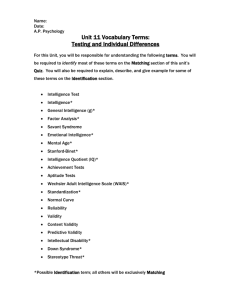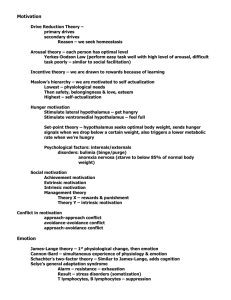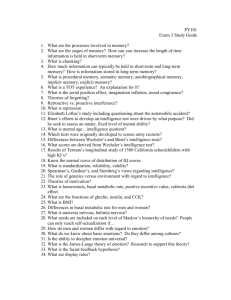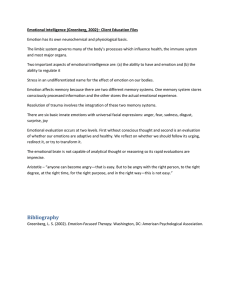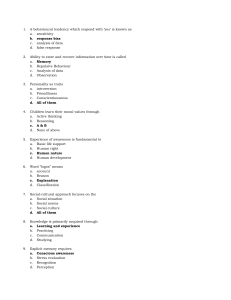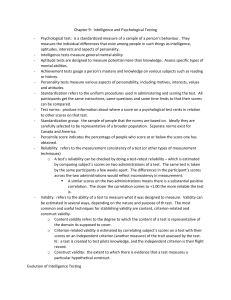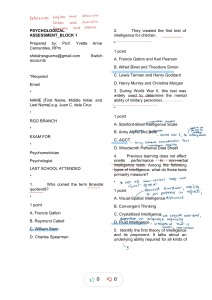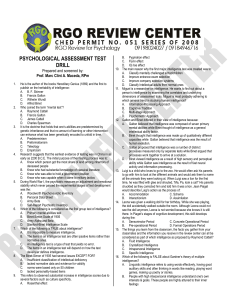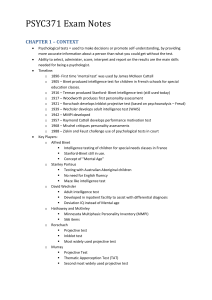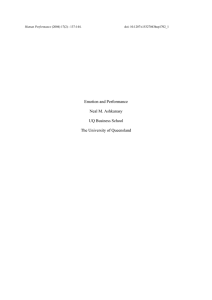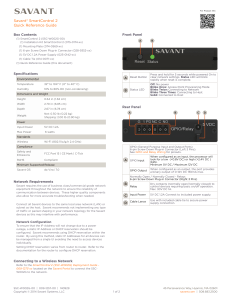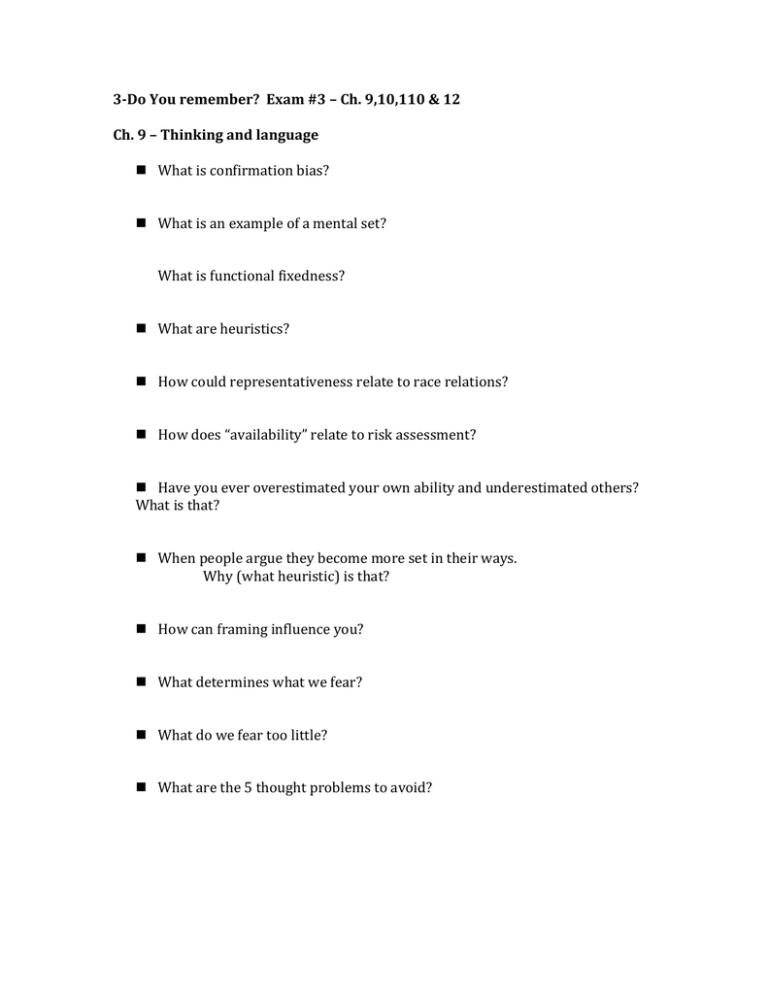
3-Do You remember? Exam #3 – Ch. 9,10,110 & 12
Ch. 9 – Thinking and language
What is confirmation bias?
What is an example of a mental set?
What is functional fixedness?
What are heuristics?
How could representativeness relate to race relations?
How does “availability” relate to risk assessment?
Have you ever overestimated your own ability and underestimated others?
What is that?
When people argue they become more set in their ways.
Why (what heuristic) is that?
How can framing influence you?
What determines what we fear?
What do we fear too little?
What are the 5 thought problems to avoid?
Ch. 10 - Intelligence
•
How does culture effect IQ scores?
•
How do we know IQ is partly based on heredity?
•
What is emotional intelligence?
•
What is cognitive intelligence?
•
What is the savant syndrome?
•
How do you calculate IQ based on the older method?
•
What was the problem with this method?
•
What is the difference between achievement tests and aptitude tests?
•
If a test has validity, what does that mean?
•
If a test has reliability, what does that mean?
•
Discuss the three types of validity?
•
What is standardization, and how did that change the meaning of IQ?
•
What is the concept of the normal bell curve that IQ is based on?
Ch. 11. Motivation
What is an example of instinct, drive reduction, arousal, and incentive
motivation?
What is an example of each of Maslow’s hierarchy levels?
What would be an incentive to motivate a child’s behavior?
What is the difference between anorexia and bulimia?
What stage in the sexual response cycle do men have that women do not?
Is it possible to get pregnant even with ejaculation outside the partner?
What factors can effect sexual orientation?
How is belongingness a motivator?
What can beat talent and motivation for achievement?
What is the interviewer illusion?
Ch. 12 – Emotion
What are the three parts of emotion?
What does the two factor theory have that the others do not?
What is the adaptation-level phenomenon?
As buying power increases, what happens to happiness?
What nervous systems get you ready for fight or flight, and calm you down?
What are the phases in the general adaptation syndrome?
What social factors can cause stress and make you more vulnerable to
disease?
Stress can increase your susceptibility to what diseases?
What strategies help you cope with stress?
What is an example of social support helping you cope with stress?
What is an example of using biofeedback to reduce stress?
Discuss the placebo effect.

